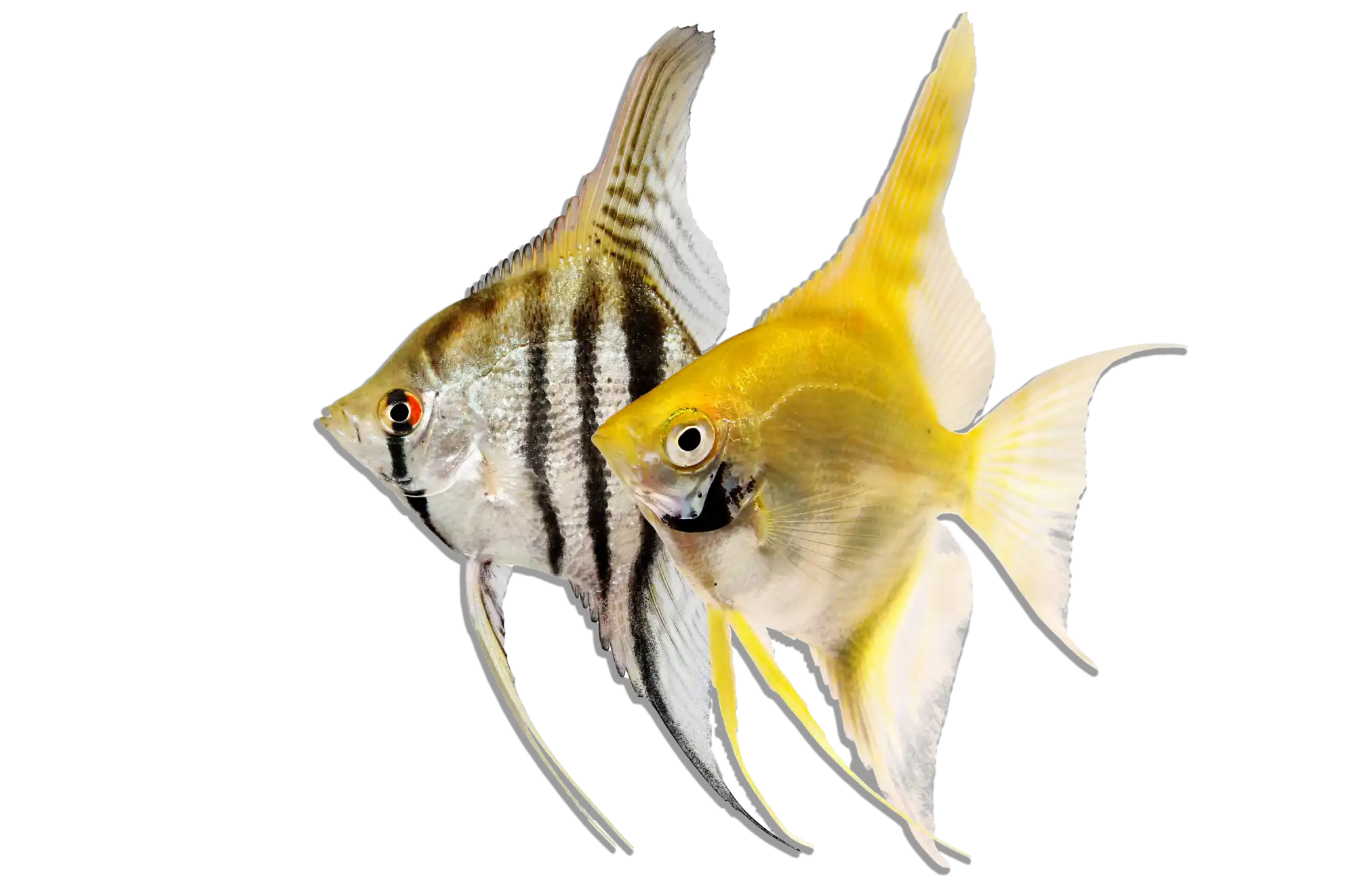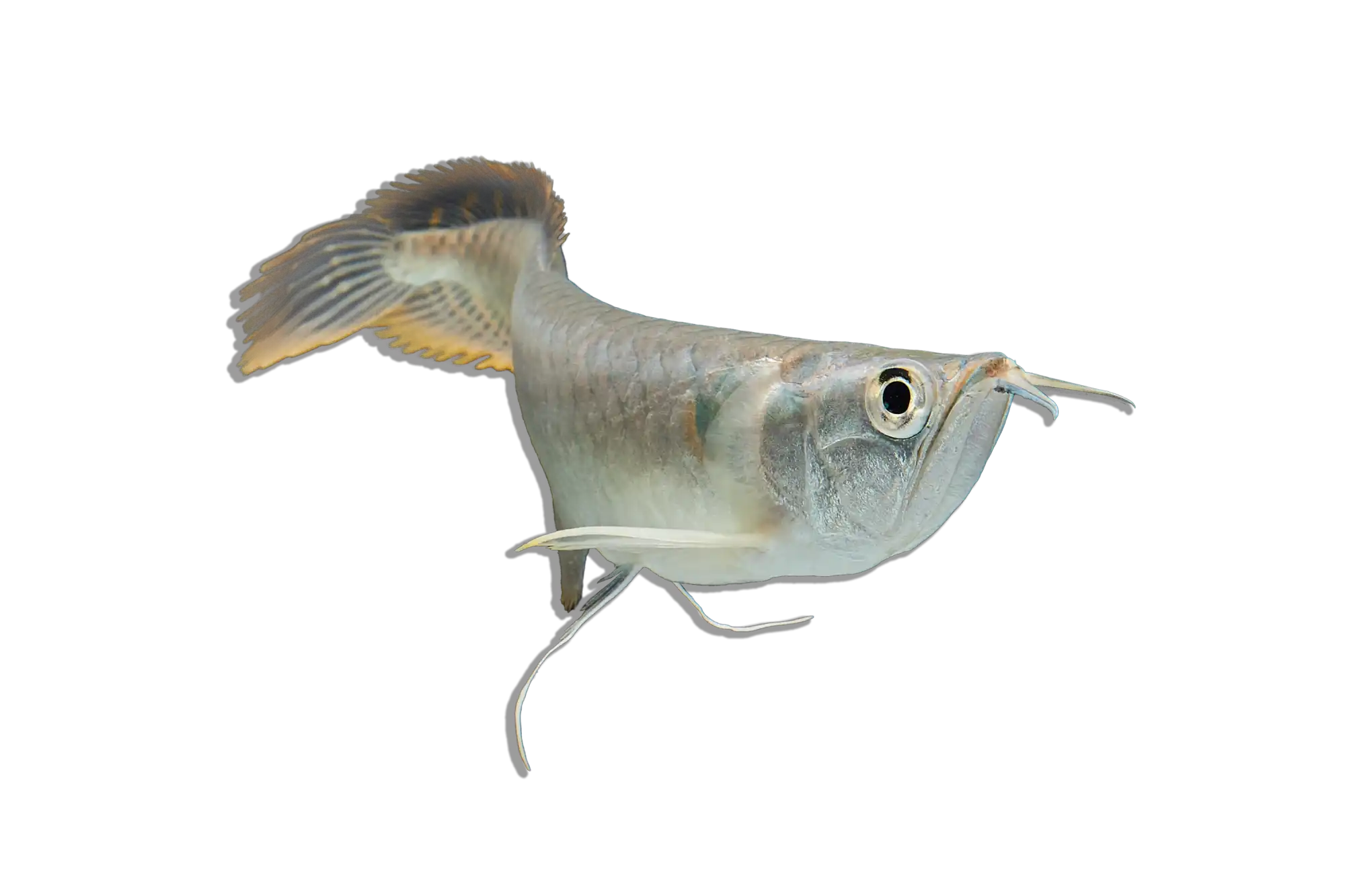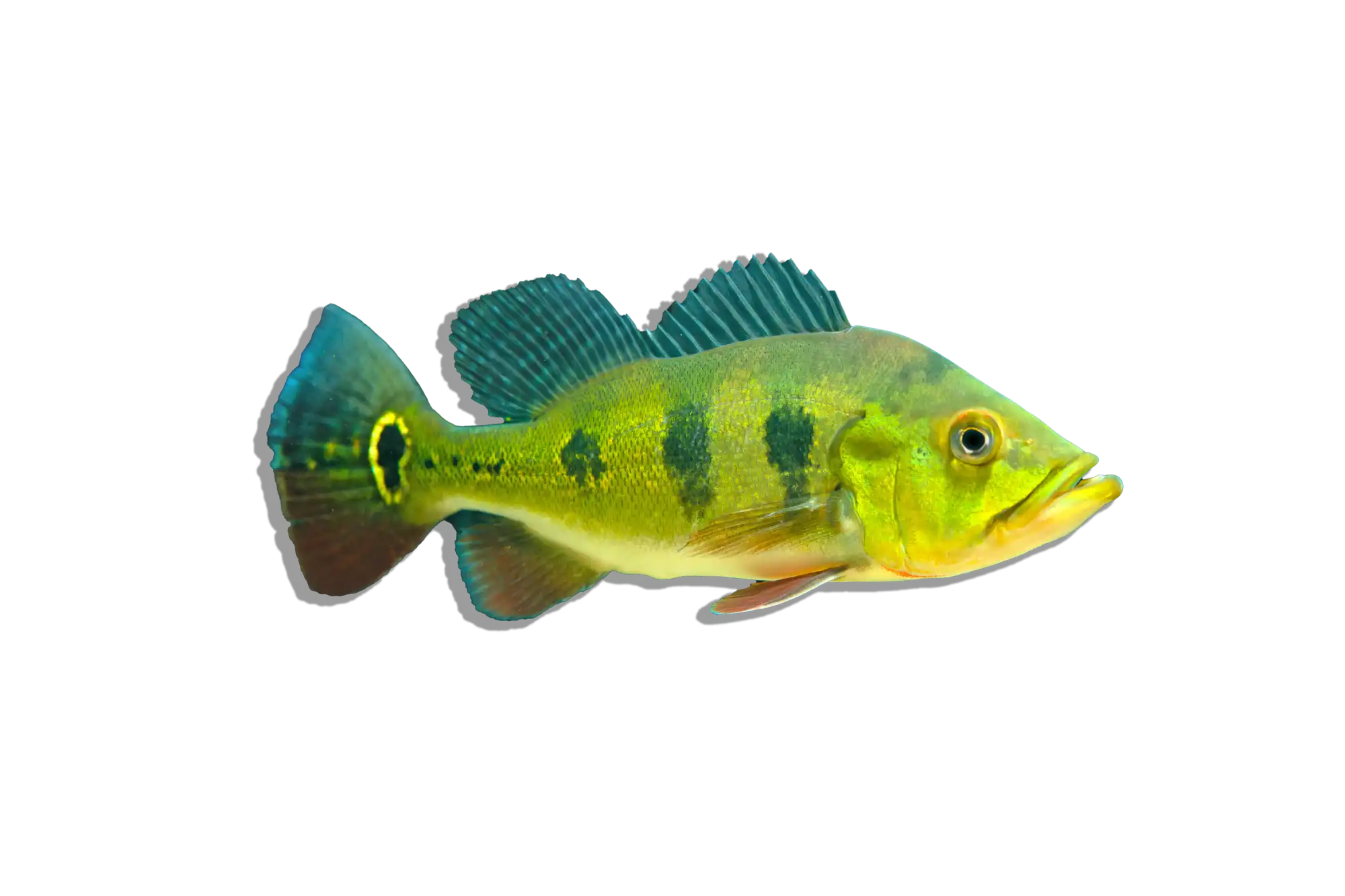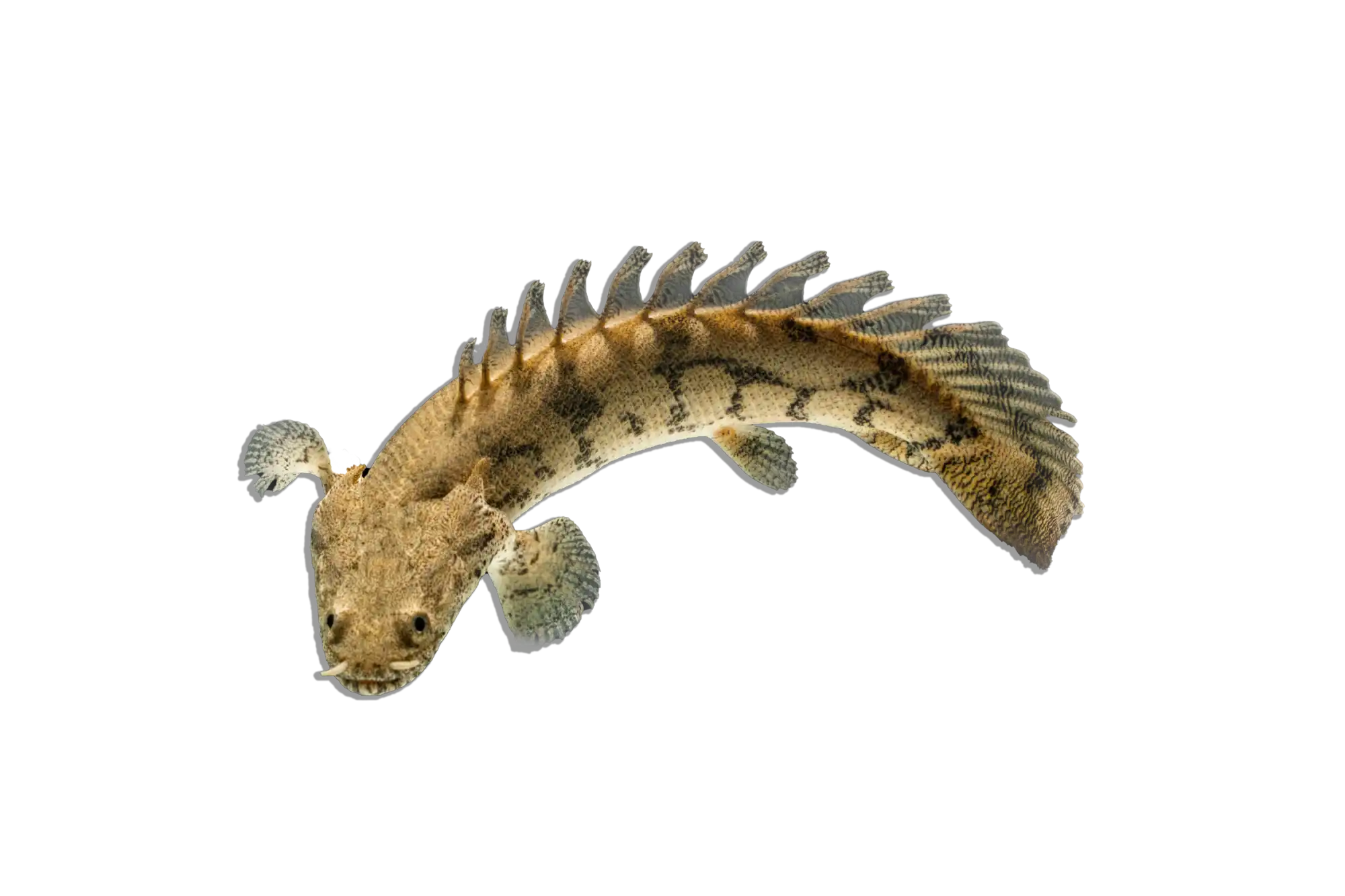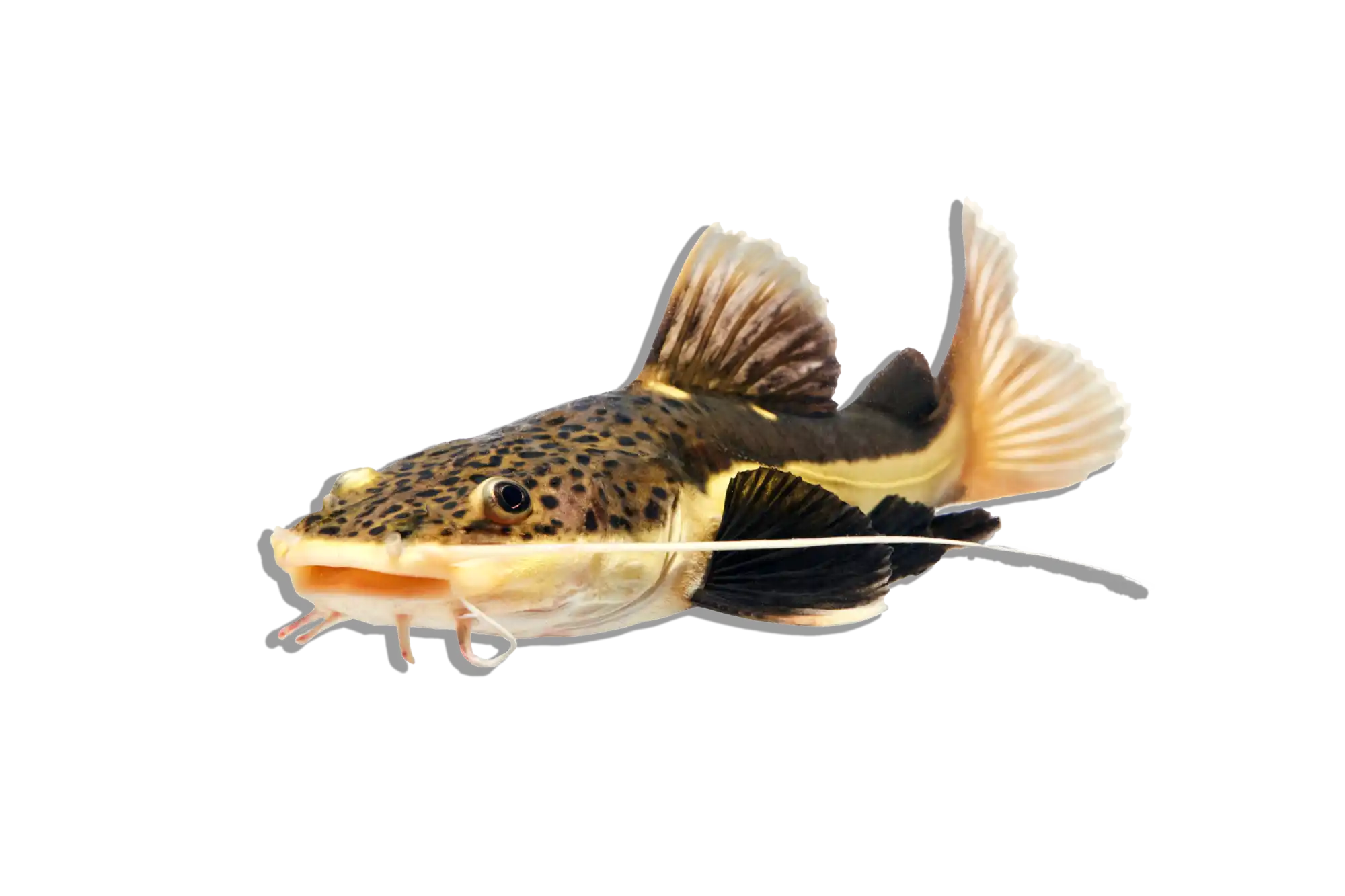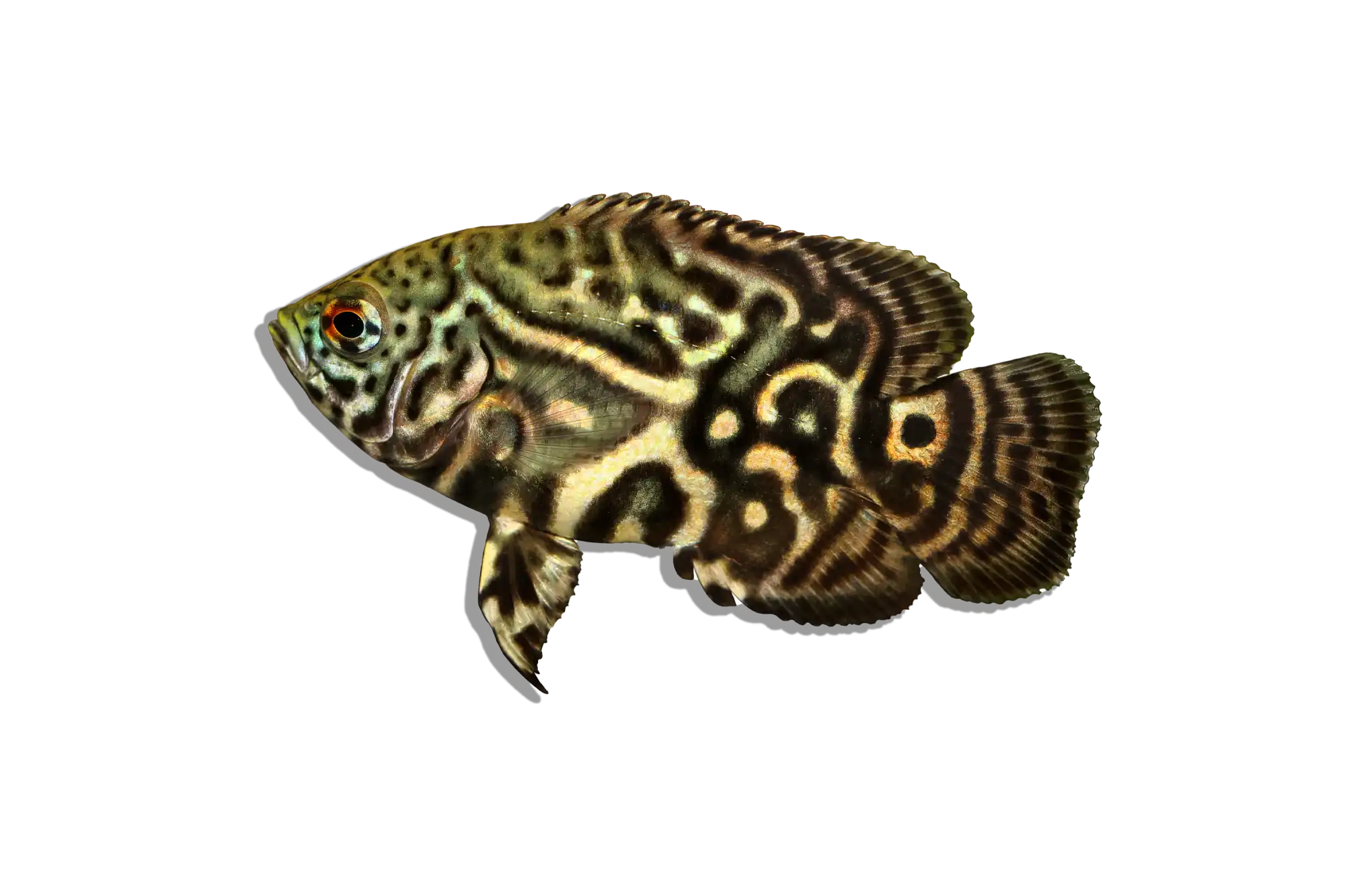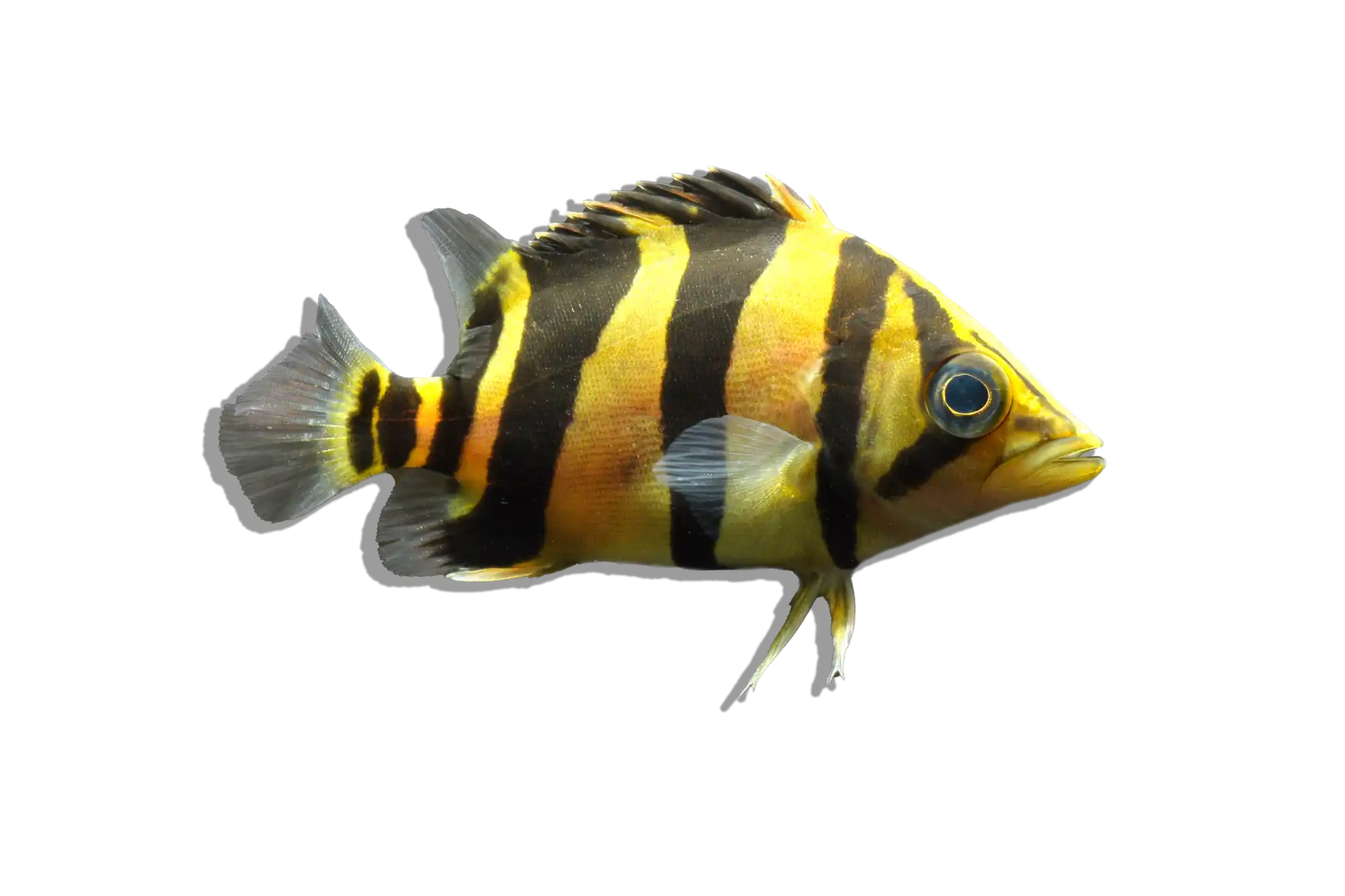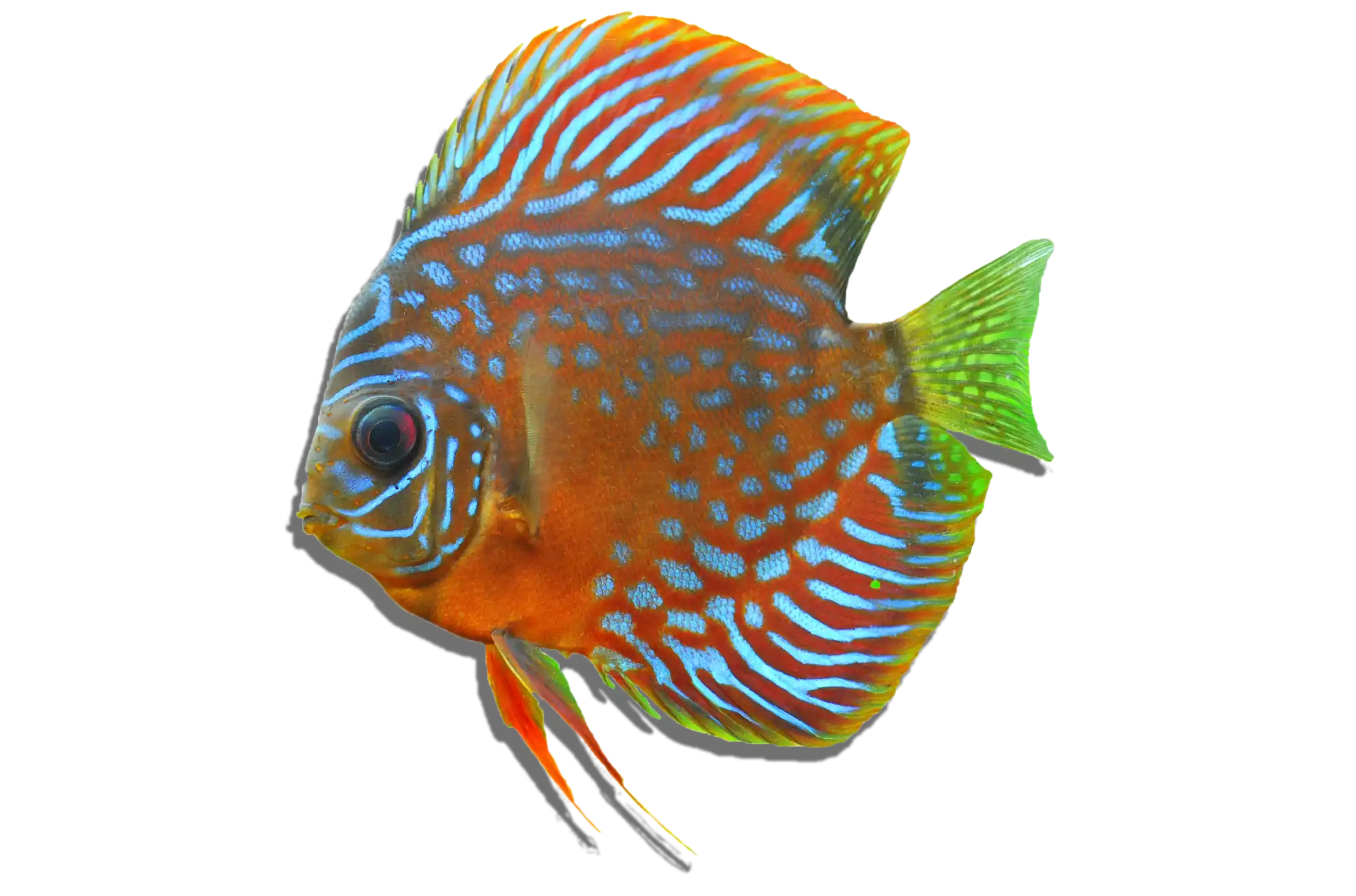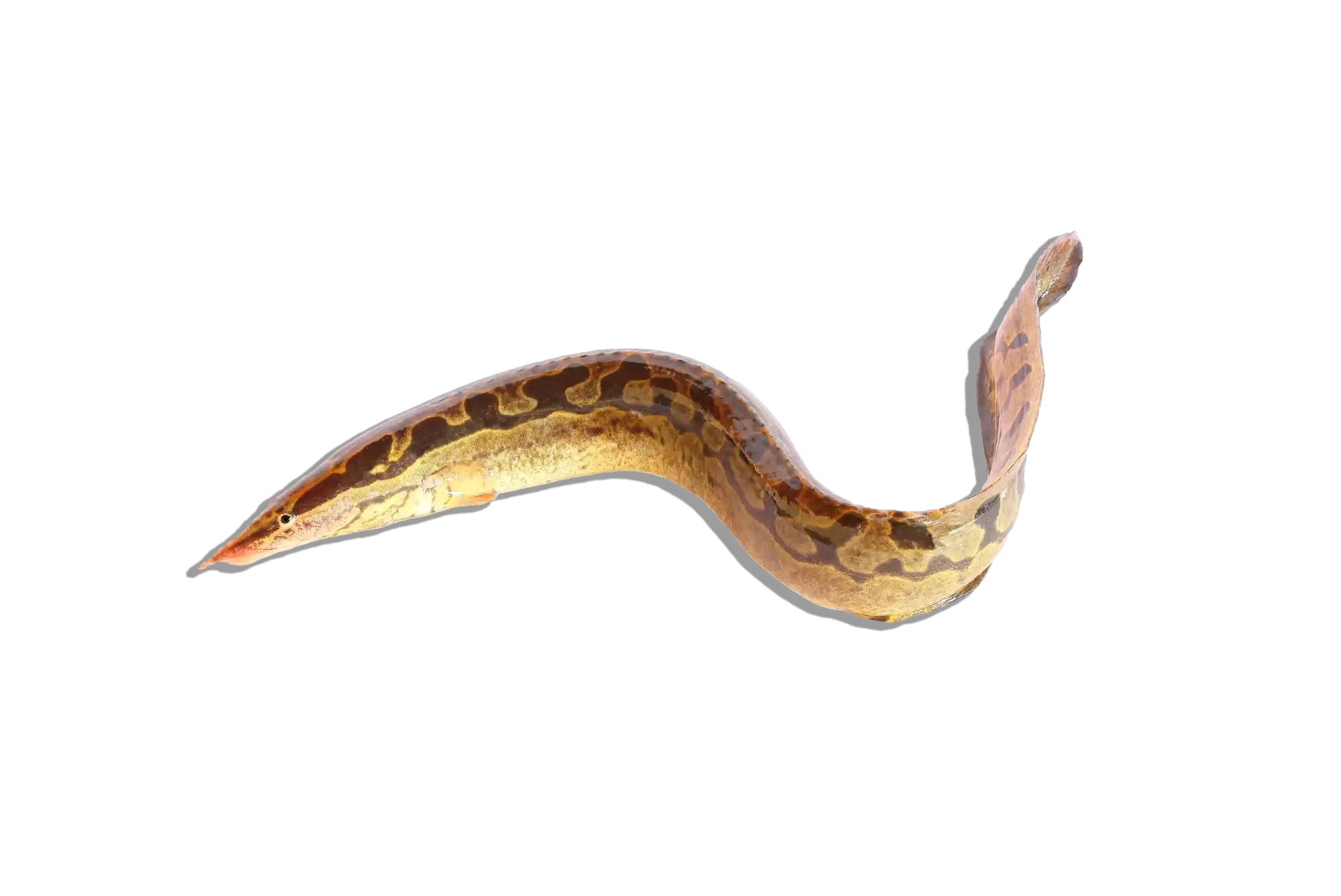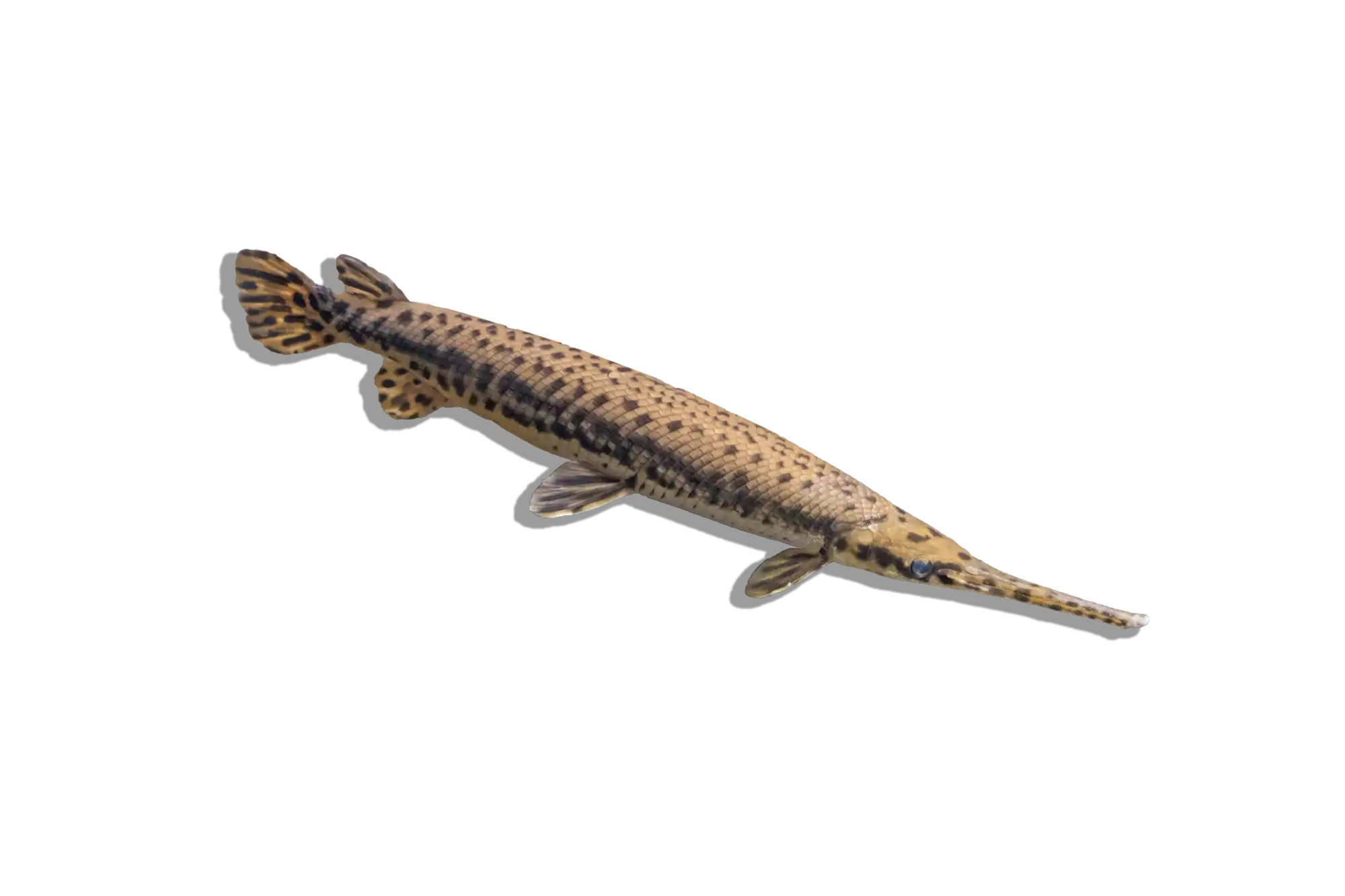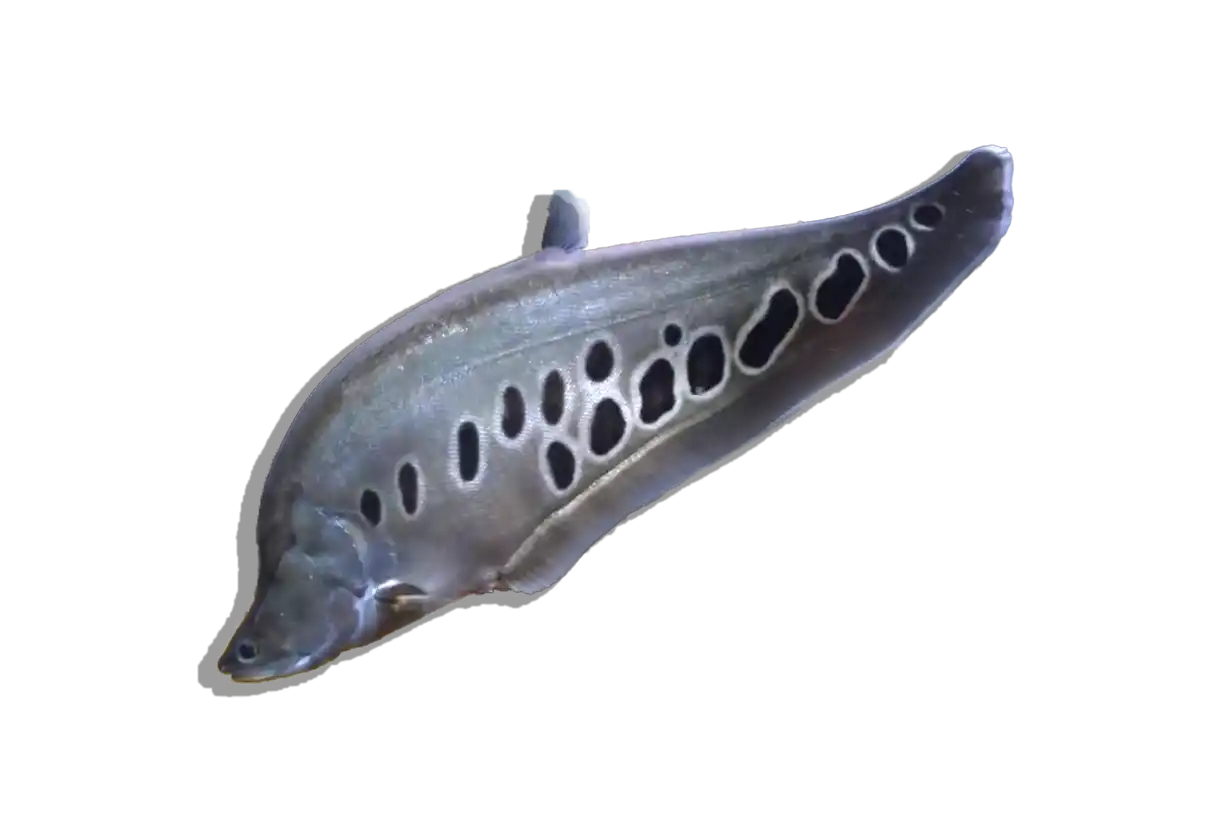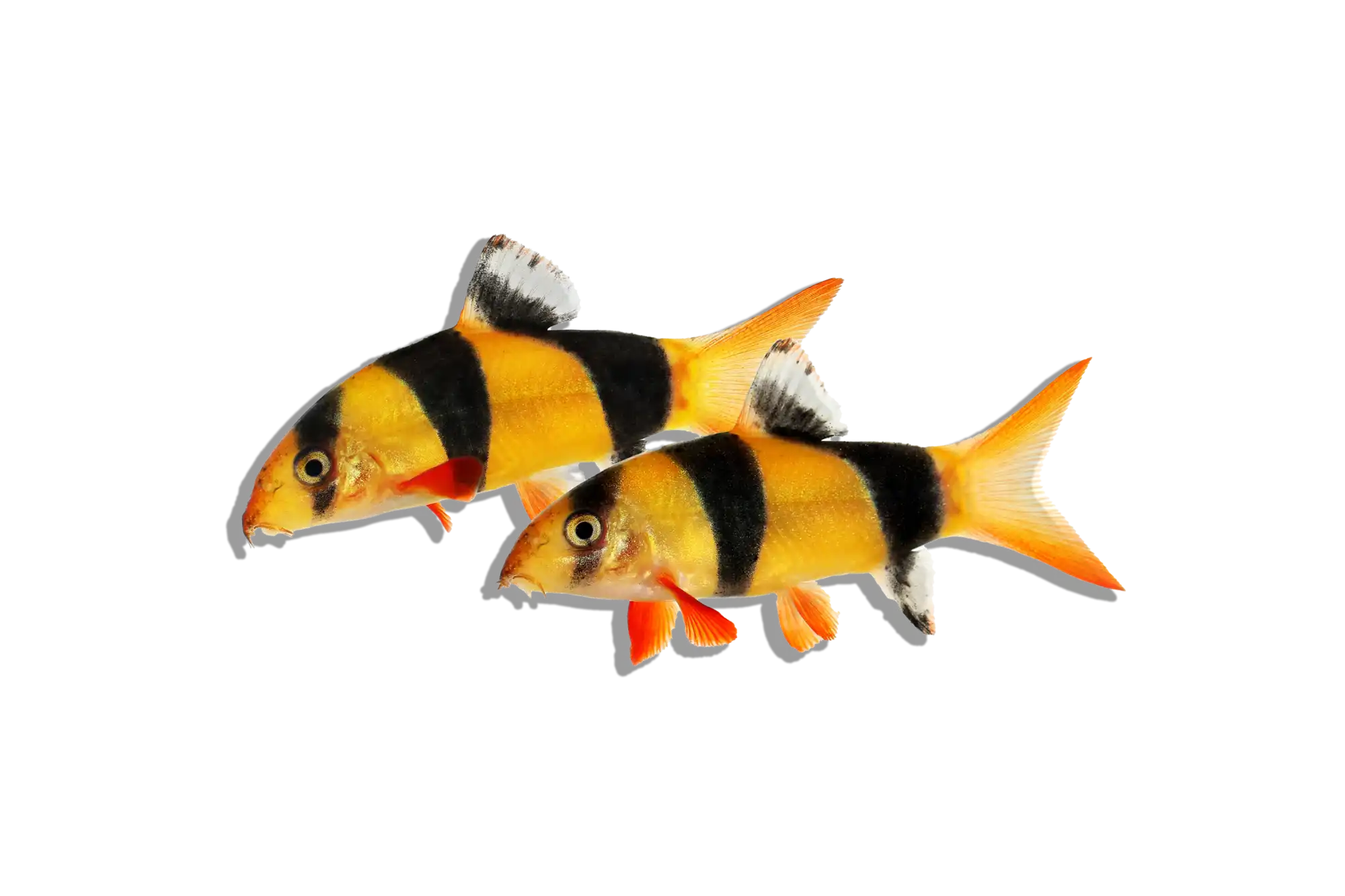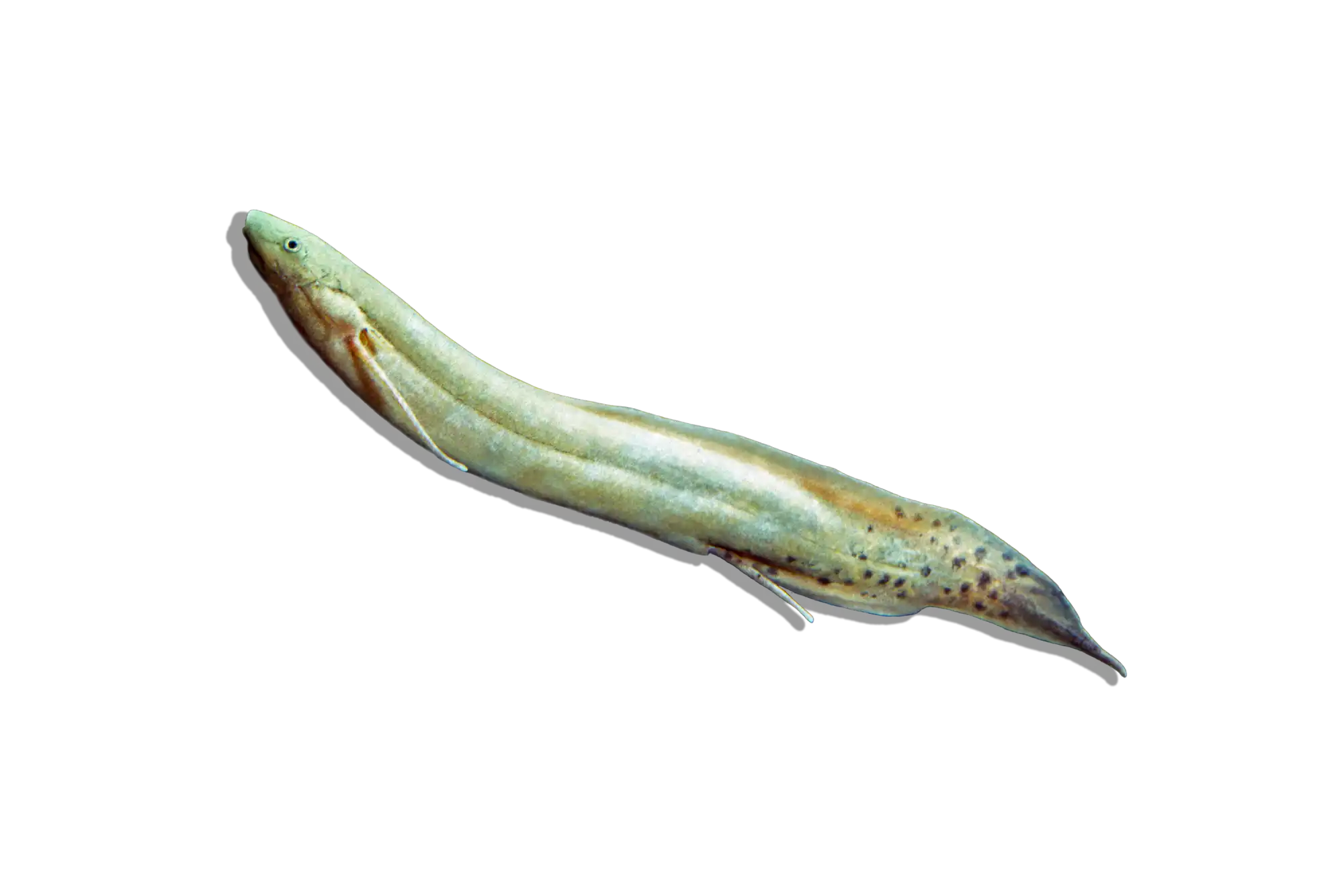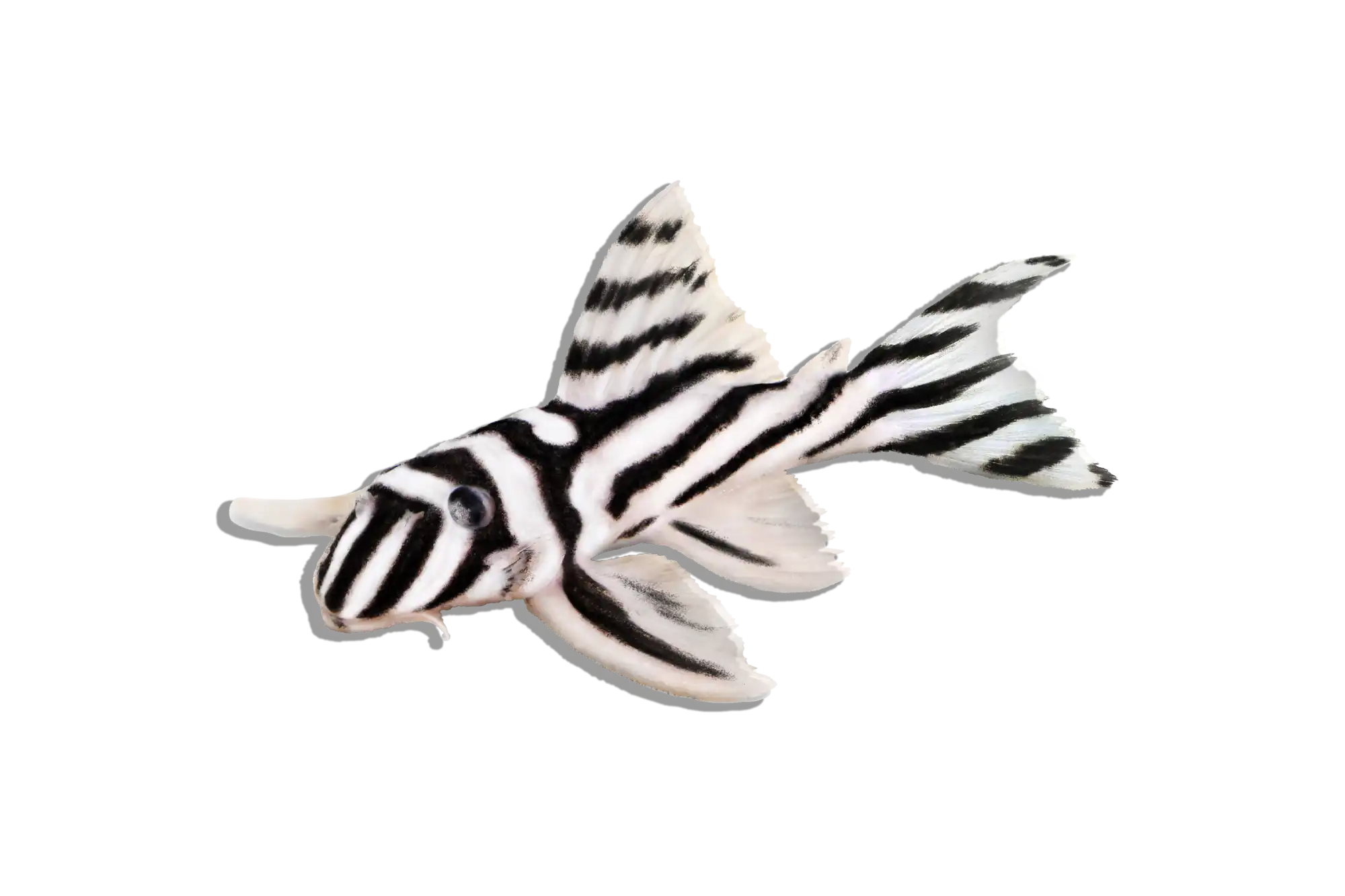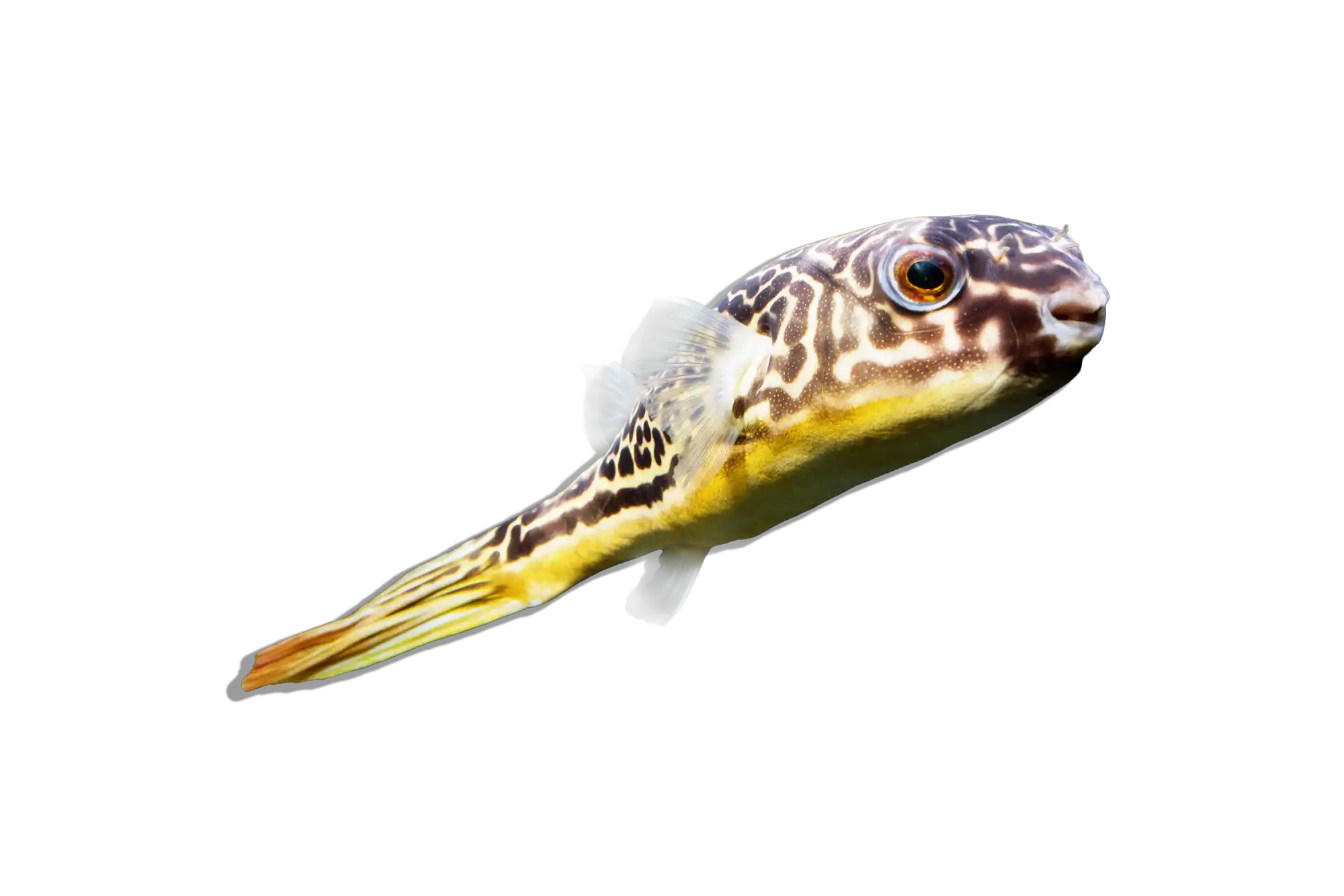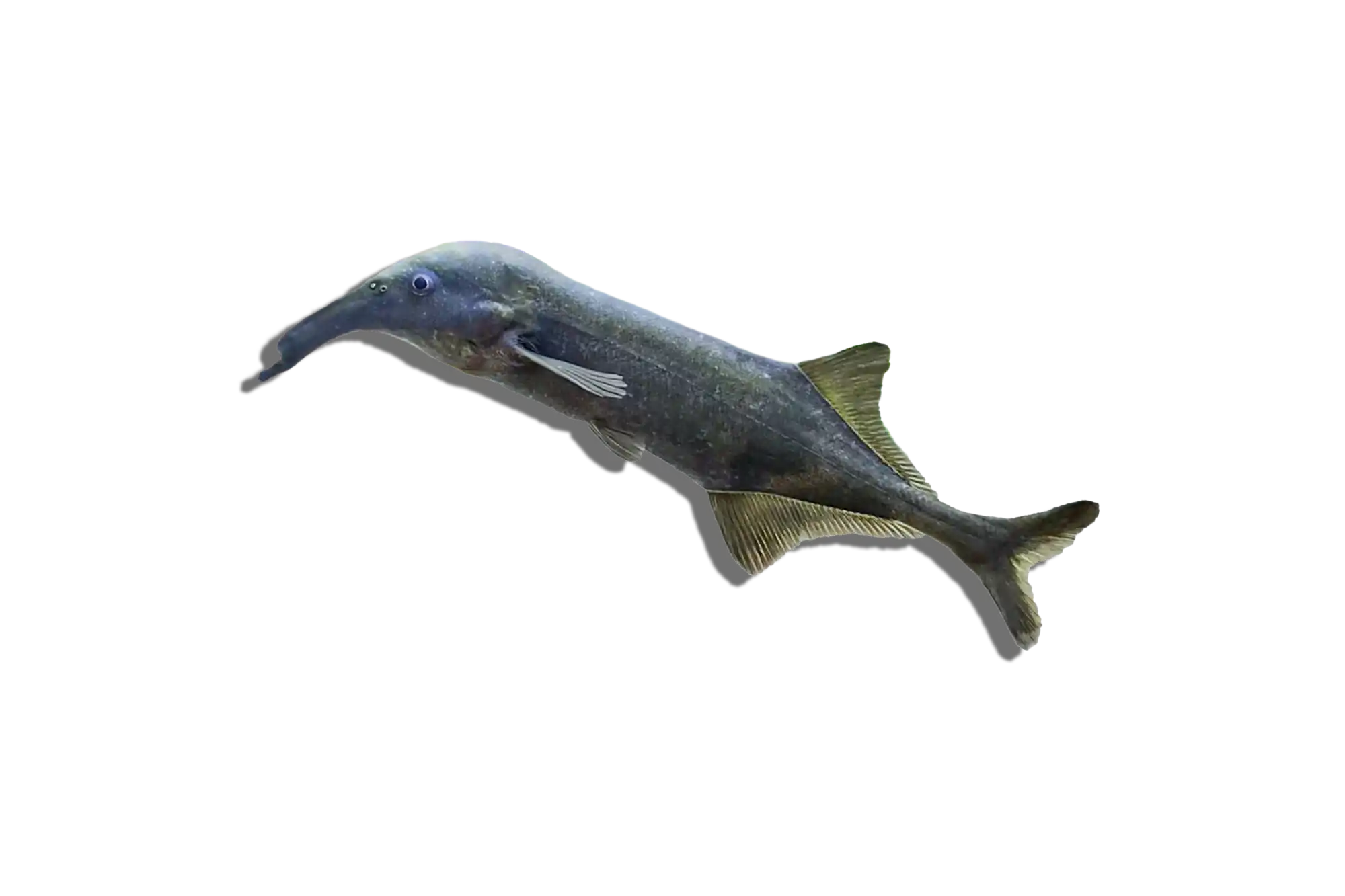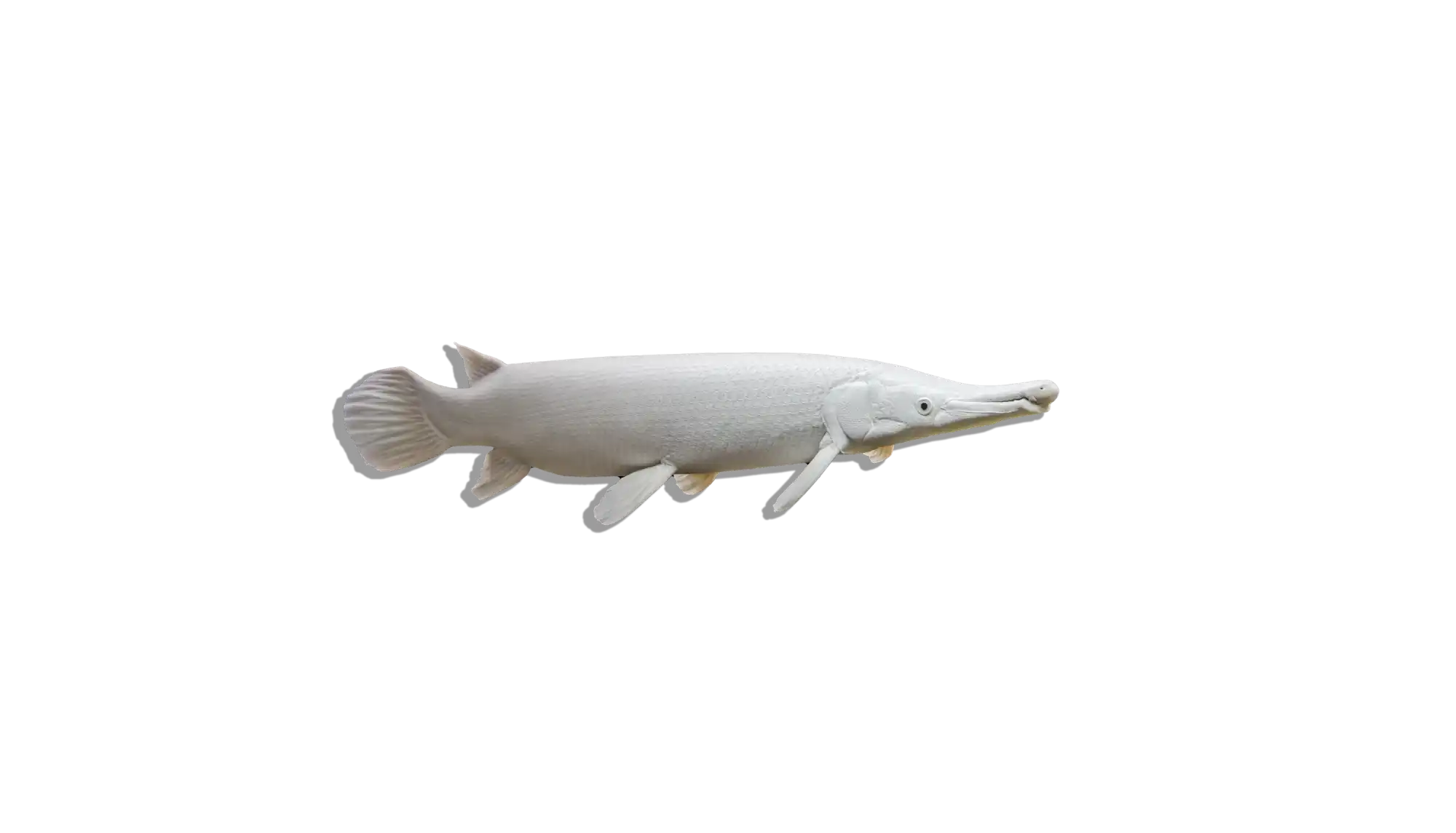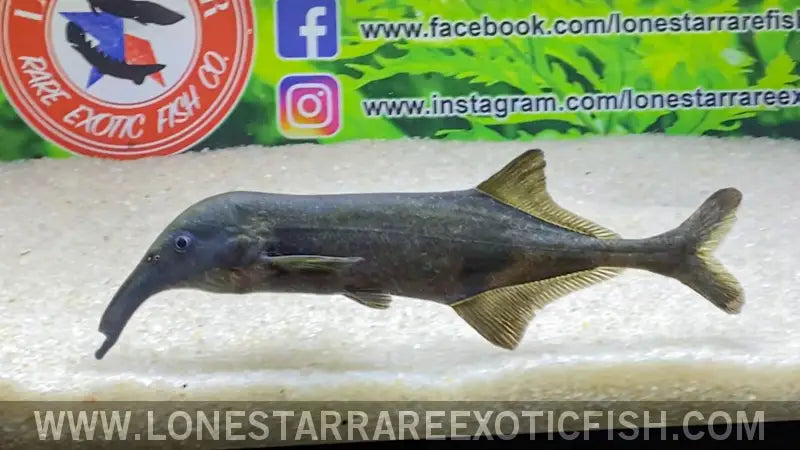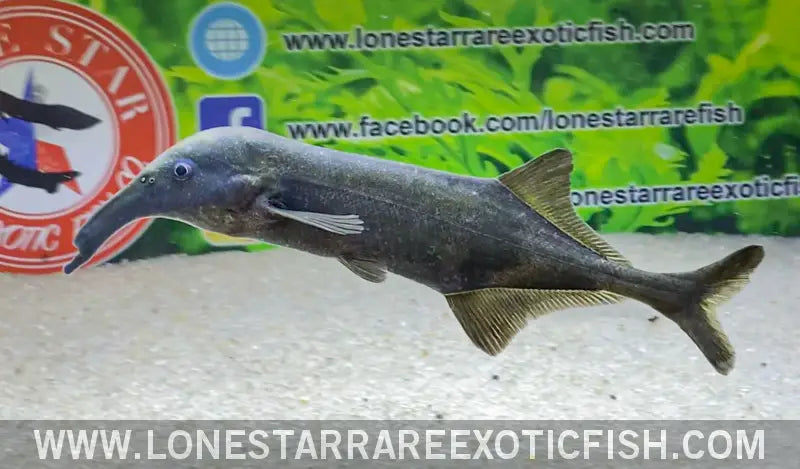Description
Common Name: Long Nose Elephant Fish
Scientific Name: Campylomormyrus rhynchophorus
The Long Nose Elephant Fish is one of the more distinctive members of the Mormyridae family, primarily because of its elongated snout or “trunk.” The body is slender, torpedo-shaped, and has a muted, brownish-grey hue. They are primarily nocturnal and use their unique snout to sift through the substrate to find food, using electric pulses to detect prey.
Habitat and Distribution:
The Long Nose Elephant Fish hails from Central Africa, particularly the Congo River Basin. These fish prefer slow-moving waters with soft substrates, typically mud or fine sand. They are often found in habitats with dense vegetation and submerged root systems, providing ample hiding spots.
Size and Lifespan:
These fish can grow up to 9 inches (23 cm) in length. With proper care in captivity, they can live for 6-10 years.
Diet and Behavior:
Long Nose Elephant Fish are primarily insectivores in the wild. They eat small insects, larvae, and worms. In an aquarium, they can be fed with high-quality sinking pellets, frozen bloodworms, and brine shrimp. Being nocturnal, they are most active during the night and prefer feeding in dimmed lighting.
Breeding and Reproduction:
Breeding the Long Nose Elephant Fish in captivity is challenging and seldom achieved. In the wild, they lay eggs among plants, and the parents do not participate in the care of the eggs or fry.
Aquarium Care and Tank Requirements:
A minimum of a 40-gallon tank is recommended, though larger is better for this species. The tank should have a soft, sandy substrate to cater to their natural digging behavior. Provide plenty of hiding spots using rocks, driftwood, and dense plants. The lighting should be dim, and a tight-fitting lid is essential as they can jump.
Ideal Tank Mates:
While generally peaceful, they can be timid and easily stressed by aggressive or overly active tankmates. Suitable companions include Congo tetras, angelfish, and other more peaceful and non-intrusive species.
Difficulty Level:
Intermediate to Advanced. Their unique care requirements and sensitivity to water conditions make them more suitable for seasoned aquarists.
Water Parameters:
• Temperature: 75-82°F (24-28°C)
• pH: 6.5-7.5
• General Hardness (GH): 5-15 dGH
• Carbonate Hardness (KH): 3-10 dKH
• Ammonia, Nitrite, Nitrate: Ideally close to 0 ppm. Regular monitoring and water changes are essential.
Additional Information:
• The Long Nose Elephant Fish, like its relatives, uses electric fields to navigate, communicate, and find food.
• They are sensitive to changes in their environment, including water parameters and electrical equipment, so it’s crucial to monitor the aquarium conditions closely.
• When acclimating them to a new environment, take care to ensure the process is slow and stress-free.

